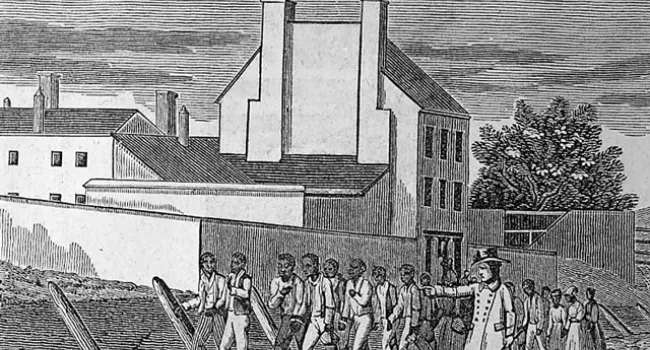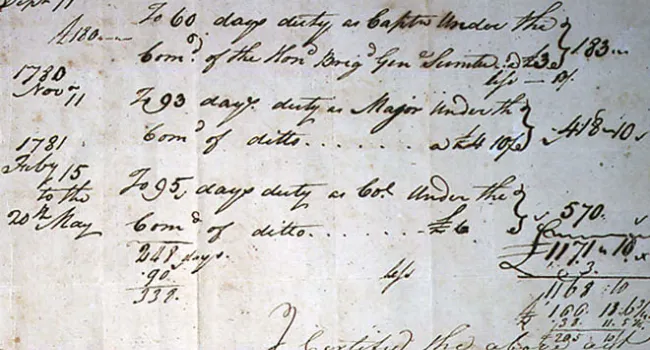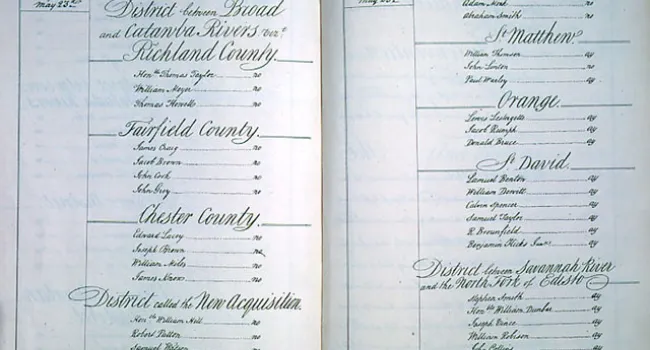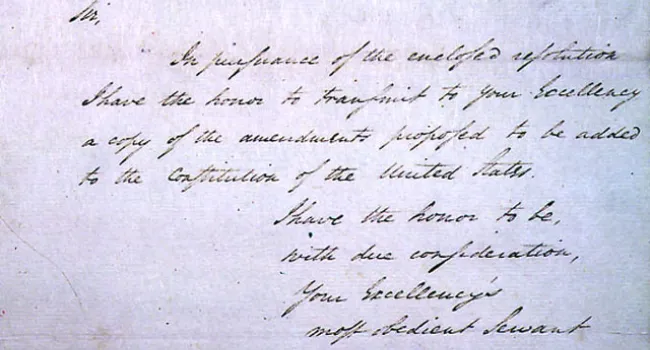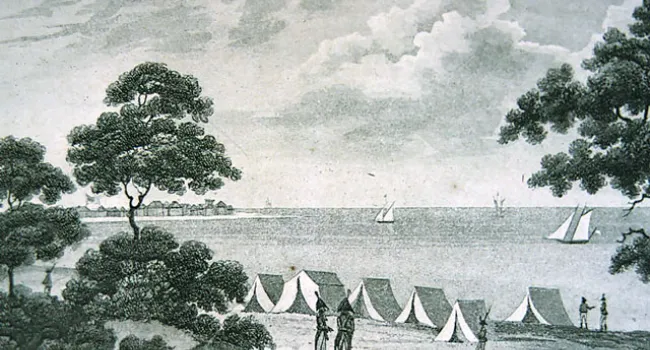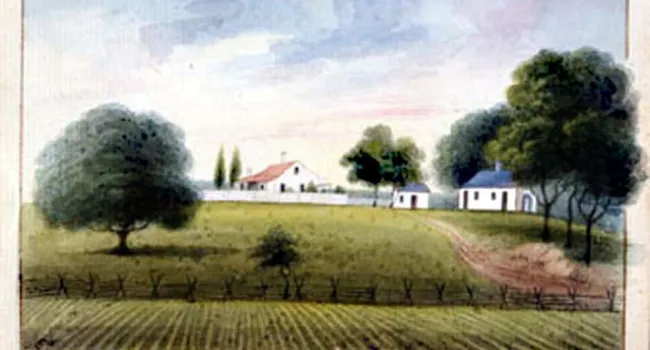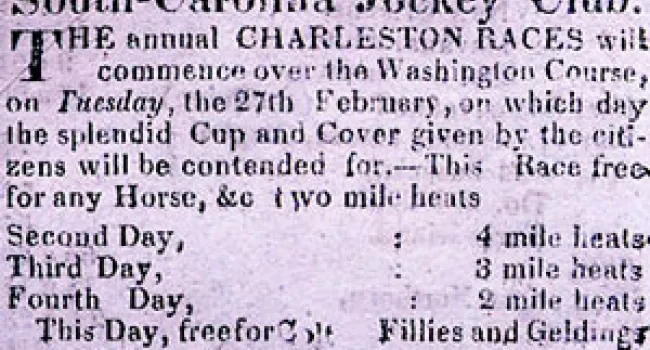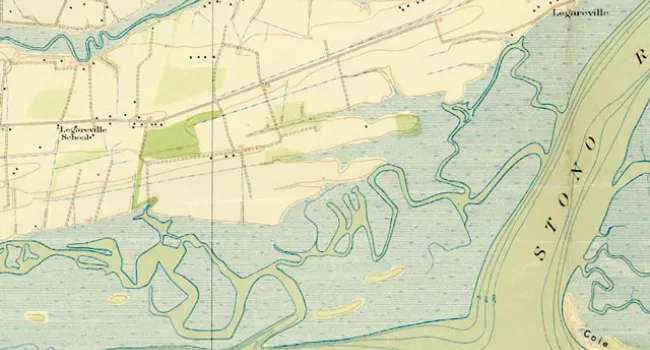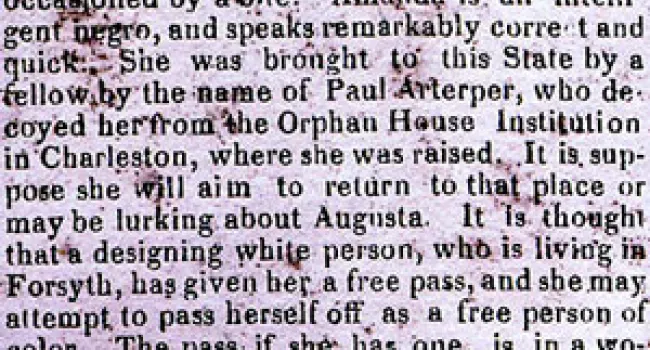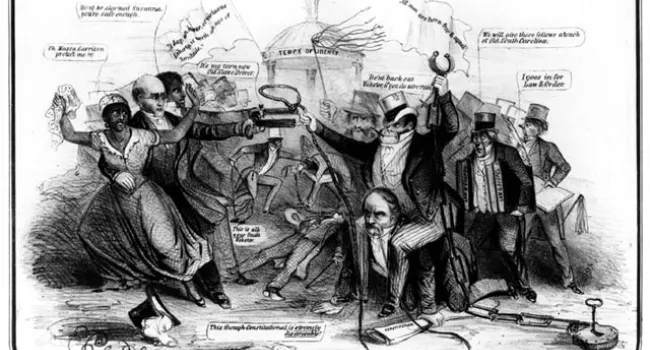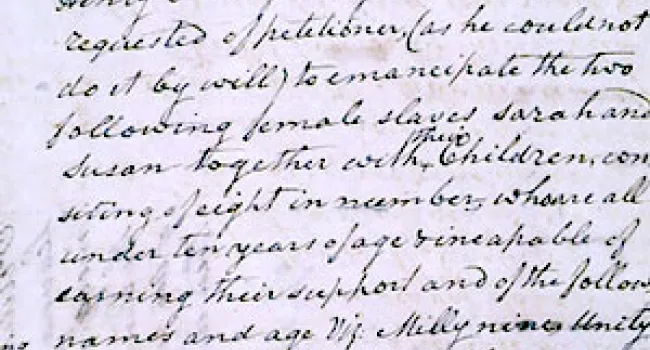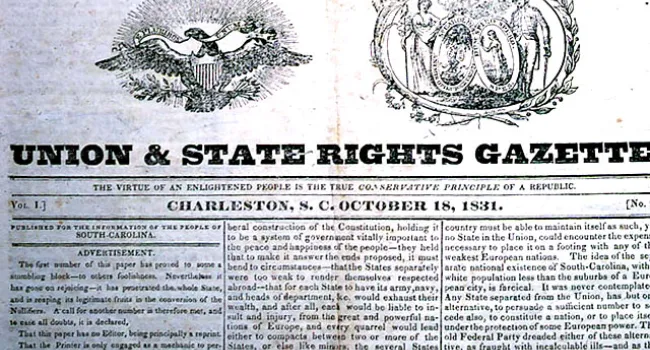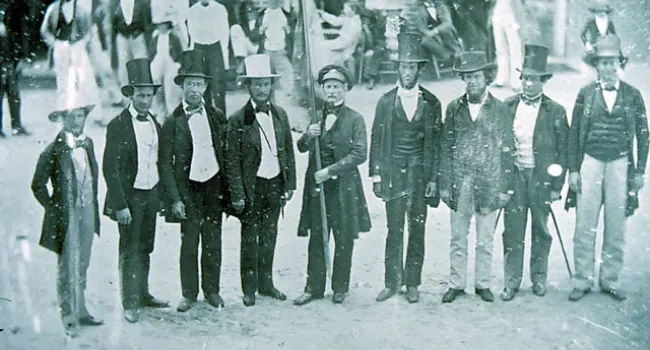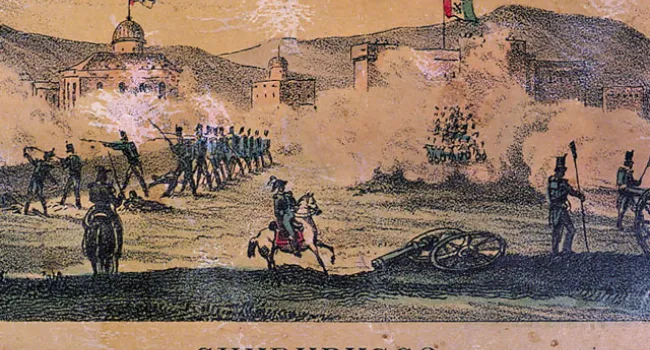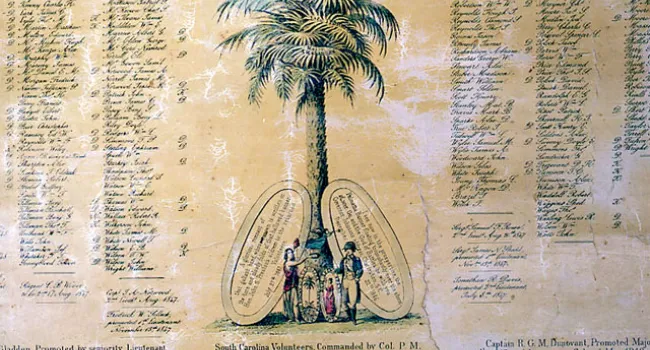
"Southern Chivalry - Argument versus Clubs," a cartoon by I.L. Magee, illustrated the strong feelings of revulsion that Northerners expressed over the Sumner-Brooks affair. The question of expansion of slavery into the territories continued to divide orth and south. In 1854, the Kansas-Nebraska Act left the question up to those in the territories under the doctrine of popular sovereignty. On May 19 and 20, 1856, Senator Charles Sumner of Massachusetts verbally attacked South Carolina Senator Andrew Pickens Butler and other Southerners on the floor of the Senate for supporting the resulting bloodshed in Kansas. Senator Butler's young nephew Preston Brooks, a member of the House of Representatives, found the speech so insulting to Butler that to avenge his honor he stalked into the Senate on May 21 and beat Sumner unconscious with his cane. Sumner did not return to his Senate seat for three years. The cartoon illustrates also the deep division between feelings in the North and South; South Carolinians were proud of Brooks for defending his uncle and their state from insult, and erected a plaque in his honor that is now located at the foot of the stairs of the South Caroliniana Library on the University of South Carolina campus.
Courtesy of the South Caroliniana Library.
Standards
- This indicator was developed to encourage inquiry into the continuities and changes experienced by Americans of various genders, positions, races, and social status during the Civil War.
- This indicator was designed to encourage inquiry into the continuities and changes of the experiences of marginalized groups such as African Americans, Native Americans and women, as the U.S. expanded westward and grappled with the development of new states.
- USHC.2.CC Differentiate the patterns of continuity and change within the development of sectionalism and reunion.

